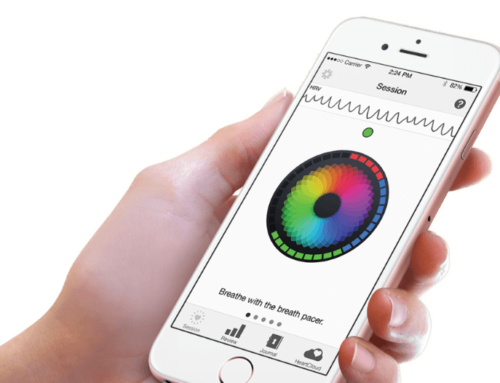 One of the best parts of my job is getting the opportunity to meet the many individuals and families that are impacted by eating disorders. Each has a different story to share. Each brings different experiences and/or backgrounds. And each is ready to gain the courage, determination and inspiration to kick their ED to the curb once and for all. Seeing recovery every day is truly amazing.
One of the best parts of my job is getting the opportunity to meet the many individuals and families that are impacted by eating disorders. Each has a different story to share. Each brings different experiences and/or backgrounds. And each is ready to gain the courage, determination and inspiration to kick their ED to the curb once and for all. Seeing recovery every day is truly amazing.
One of my not-so-favorite parts is hearing the stigma around eating disorder treatment. I get that the word “treatment” can be very intimidating and scary, but all-too-often, I hear unrealistic expectations, baseless rumors or frankly inaccurate myths about eating disorder treatment that can be so powerful that they prevent many from seeking the help they need.
I’m here today to set the record straight, dispel the following myths and to share why we should challenge many of these beliefs.
1). “The other people in treatment won’t be like me”
Eating disorders affect an estimated 30 million Americans, so plenty of people – including those you meet in treatment – have a pretty good idea of the struggles and challenges you’re facing.
Unlike the media and cultural standards painting eating disorders as a young, white and upper-class female issue, eating disorders impact people of all ages, genders, races and ethnicities, socioeconomic status, and body shapes and sizes.
There is also a range of diagnoses beyond Anorexia Nervosa and Bulimia Nervosa that are being addressed in treatment settings at all levels of care, such as ARFID and Binge Eating Disorder.
While the origin and makeup of everyone’s eating disorder may be different, treatment brings individuals dealing with similar issues together in mutual understanding. This holds true whether you’re a male adolescent, a 30-year old professional, an older adult, an athlete, an individual identifying as LGBTQ etc… You’ll always find invaluable peer support.
2). “Being in treatment will stigmatize me or follow me for life”
Shame is a powerful emotion, one that serves to keep people sick for far longer than they would be otherwise. I can’t be more adamant: there is zero shame in seeking support for an eating disorder (or any mental health issue). In fact, everyone who picks up that phone or enters the door is amazing and brave in my mind.
At one point in time, there was a lot of stigma associated with even the idea of seeing a therapist. Now, it’s viewed as more common and culturally accepted. Over the last decade or so many public figures have come forth with their stories of seeking help at treatment facilities for various issues, from eating disorders to substance use disorders, sex addiction and trauma. Demi Lovato, Paula Abdul and Elton John are among the many celebrities who have shared not only shared their own challenges and recovery journeys, but also inspire us in more ways than one. You can do that too!
If privacy is a concern – and you want to keep your treatment experiences under wraps – we get that and are respectful of your wishes. There are many laws in place to protect you and your medical history.
3). “I’ll be told it’s my fault or my family’s fault that I got sick”
Eating disorders are complex conditions whose origins are a complicated blend of biological, psychological and environmental factors. No matter the level of treatment, you’ll find trained professionals who will work to understand your unique needs, validate your journey and remove any shame or blame.
These providers can provide psychoeducation to help you better understand the etiology of these disorders and facilitate insight into some of the contributing factors that may have led to the onset of your eating disorder. From there, they will work with you to problem-solve any obstacles that might be getting in your way.
In many cases, families can play an active role on your treatment team, especially in the cases of adolescent care, to learn what it takes to best support you now – and down the road.
4). “I will have to give up control and might be forced to do things I do not want to do.”
If you’re seeking treatment for an eating disorder, chances are high that it has begun to take over your life, negatively impact your health, disrupt your day-to-day functioning and maybe even fracture personal relationships.
Many people find it helpful to begin to externalize the eating disorder as they begin their journey to recovery. This means separating out the eating disorder from your true authentic self, pre-eating disorder. Once you adopt this mentality, you might be able to understand that this voice—the one afraid of losing control and rejecting assistance from professionals—is actually your eating disorder’s voice, not your own.
As you move through treatment and reconnect with your healthy self, you will begin to understand and embrace the skills, routines – and yes, even the “rules” – which you encounter in a treatment setting.
5). “Treatment will make me fat”
Intense preoccupation with body image and fear of gaining weight is a symptom of many eating disorders. As you continue to move forward in your battle with ED, eating disorder thoughts and distortions start becoming less intrusive and will begin to abate.
Eating disorders come in all shapes and sizes, as does recovery. Some people’s bodies won’t change at all, others may need to go through the process of restoring some weight. The goal is to get your body to a place where it is nourished and able to function at an optimal level for growth, development, sport, fertility, brain function or simply day to day living. A nourished body and mind help to lessen distorted thinking about body size and gives you the tools you need to work on body acceptance.
6). “Treatment won’t work”
I won’t sugarcoat things in saying treatment is this magical one-time fix. Some people do very well their first time in treatment. Others may struggle a bit and move between levels of care over months (or sometimes years). There are also people who eventually return to treatment after some time.
Every person’s journey is unique, and the important thing to remember is that you will build upon the layers of your recovery with each experience, learn new skills and continue to explore different routes to being healthy until you find one that sticks. And if you’re in a situation where you’re coming back to treatment, reframe it as building a foundation—relapse is not failing, it’s merely another learning experience and chance to reassess goals and treatment plans.
Like any type of treatment, eating disorder recovery takes a lot of hard work. You may not love or even like every moment of it, but regardless of what you’ve heard, it can get you to become a much more happy and healthful you. Trust me – I see it every day.
If ever you have questions or concerns about any part of the treatment process, we’re here to talk you through them.
####
 Fiona LaRosa-Waters is Community Relations Specialist for Walden Behavioral Care. She earned her Bachelor of Science degree in Human Services at Lesley University, and is currently pursuing an M.Ed in Health Education through the Eating Disorders Institute at Plymouth State University. Prior to coming to Walden, Fiona held positions as a professional outreach representative for eating disorder, substance use, and trauma treatment facilities, was a counselor in a treatment center for adult women with eating disorders and provided outpatient case management for clients struggling with addictions and eating disorders. She is passionate about helping people locate resources to support treatment and recovery, advancing education about eating disorders and addiction and about connecting with the mental health community.
Fiona LaRosa-Waters is Community Relations Specialist for Walden Behavioral Care. She earned her Bachelor of Science degree in Human Services at Lesley University, and is currently pursuing an M.Ed in Health Education through the Eating Disorders Institute at Plymouth State University. Prior to coming to Walden, Fiona held positions as a professional outreach representative for eating disorder, substance use, and trauma treatment facilities, was a counselor in a treatment center for adult women with eating disorders and provided outpatient case management for clients struggling with addictions and eating disorders. She is passionate about helping people locate resources to support treatment and recovery, advancing education about eating disorders and addiction and about connecting with the mental health community.






